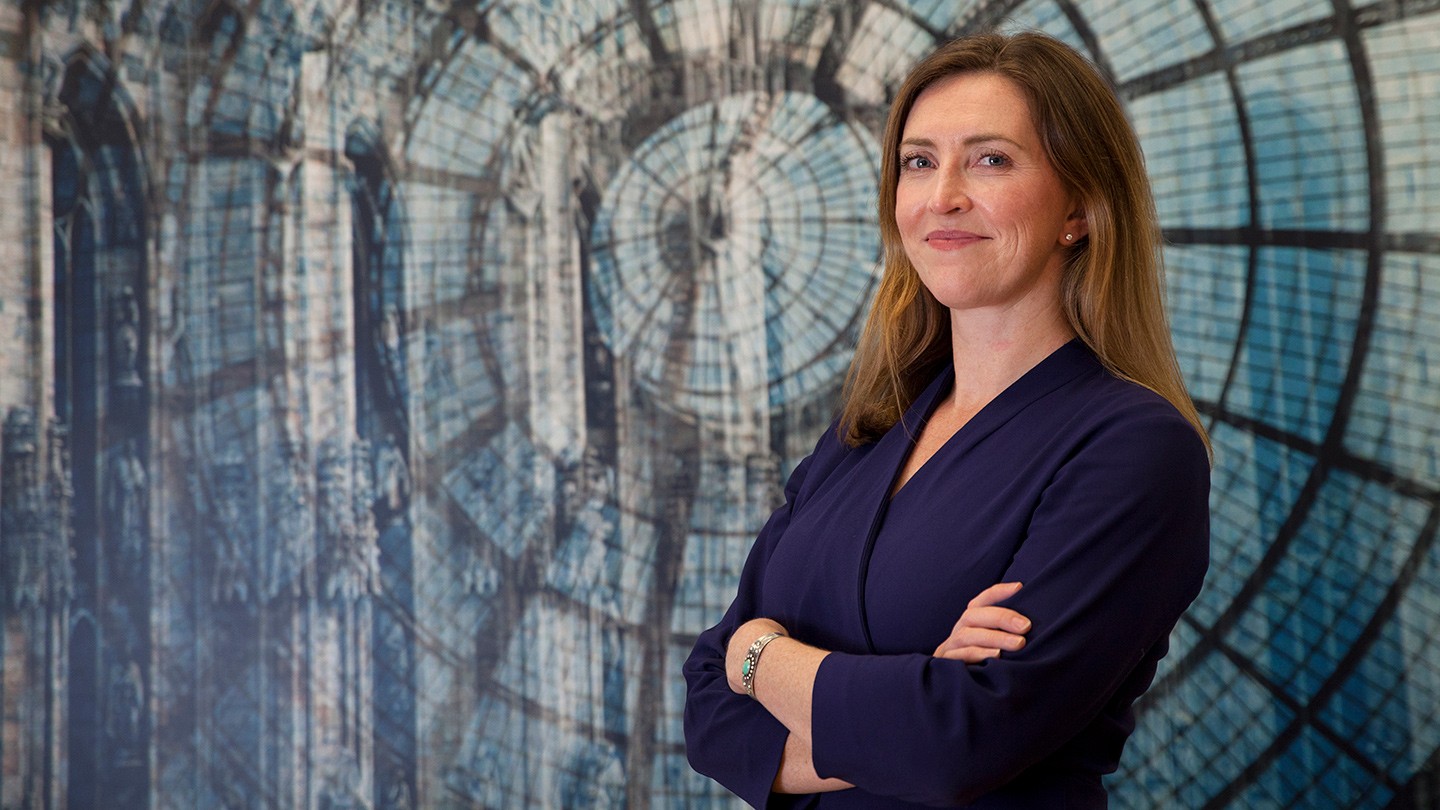Elsa Palanza is Global Head of Sustainability & Citizenship at Barclays. She tells us how Barclays is supporting the United Nations Environment Programme Finance Initiative’s Principles for Responsible Banking – and why “now is the time” for the financial sector to act on climate change.
The Principles for Responsible Banking provide a single framework for the global banking industry to embed sustainability at strategic, portfolio and transactional levels, and across all business areas. The Principles help to align banks with society’s goals, as expressed in the Paris Climate Agreement and the United Nations’ Sustainable Development Goals – a set of targets dedicated to tackling climate change, ending poverty and ensuring global peace and prosperity.
Barclays is one of 30 founding banks to develop and support the Principles, which were announced at the UN Environment Programme Finance Initiative’s global roundtable in Paris in November 2018.
For Elsa Palanza, Global Head of Sustainability & Citizenship at Barclays, the Principles represent an opportunity for the bank to make a significant impact on the future of our planet.
“We are seeing more global frameworks, such as the Sustainable Development Goals, engage with the private sector,” she explains.
“That’s why I am so excited about the Principles for Responsible Banking. It gives banks the opportunity to take the reins and articulate how we are going to focus our business practices to meet society’s goals.

Caption: Elsa Palanza, Global Head of Sustainability and Citizenship
“The world is changing, and we have to change with it. Banks are moving beyond the concept that corporate responsibility is just about making charitable donations and then continuing with business as usual.”
The initiative is about building a sustainable banking system for both current and future generations, says Palanza, and ensuring that Barclays and other financial institutions embrace the chance to make change through our products and services.
“We are an industry leader, which means it’s our responsibility to drive commercial success, growth and prosperity for our customers, clients, shareholders and wider society – and it’s also our responsibility to mitigate risk. We do this by understanding the potential impact of our business, and holding ourselves to the highest possible standards, ensuring we are being transparent and accountable.”
Barclays and sustainable banking
The Principles for Responsible Banking are about harnessing the banking industry to make a tangible impact on the challenges facing the planet.
“It’s easy to sound hyperbolic about this topic, but the Intergovernmental Panel on Climate Change has given us until 2030 to address climate change before we reach an irreversible position,” says Palanza. “After that, there is no going back – and the ramifications of that are catastrophic.
I am proud to work for a bank that is passionate about building a positive future for generations to come
“The planet warming, coupled with the sea levels rising, will mean millions of people will be displaced from their homes and become climate refugees. It will also mean industries and resources that are dependent on certain physical conditions – like agriculture or water – will be subject to extreme risk. It’s no good just fear mongering, now is the time to take action.”
Palanza is adamant that collaboration and partnership is essential to tackle such immense challenges. “If we are going to be effective, then we need to ensure we are connecting with our colleagues at every level,” she explains.
“No one team can do it alone, and it will take everyone, from our corporate and investment bankers to our risk and facilities teams – not to mention critical external stakeholders like NGOs and investors – to assess our own business and help our clients do the same, and to ensure we are coming up with creative solutions to the world’s problems.
She highlights ways that Barclays is focusing on financing solutions that deliver positive social and environmental impact. Some examples include expanding Barclays’ green product portfolio to include things such as a first-to-market green mortgage product for the UK, or aiming to double the bank’s green bond investment to £4bn over time.
Barclays has also made a commitment to facilitate £150bn of social and environmental financing by 2025, including funding for sectors such as renewable energy, clean technology, education, affordable housing, and national and supranational development institutions.
For Palanza, these examples demonstrate how the bank can be its most effective. “As a financial institution that is where are our best capabilities lie – leveraging financing and resources towards the ideas and the businesses that can make a difference right now. Today.”
Naturally, there is lots of work to be done. Now that the Principles have been formally launched, signatory banks have committed to be held accountable for their social and environmental impact.
“I think it’s a really exciting opportunity,” says Palanza. “I’ve seen incredible commitment so far from many areas of the bank – but there’s no doubt it is a complicated road ahead for all of us to step up to the Principles in a comprehensive way.
If we can leverage that commitment and allocate intelligent resources toward the opportunity side – that is, the commercial opportunities inherent in driving a new economy – while assessing our exposure to climate change and other social and environmental challenges, I know we can make the progress necessary to see real impact. I am proud to work for a bank that is passionate about building a positive future for generations to come.”
The Principles for Responsible Banking
- Alignment: We will align our business strategy to be consistent with and contribute to individuals’ needs and society’s goals, as expressed in the Sustainable Development Goals, the Paris Climate Agreement and relevant national and regional frameworks.
- Impact & Target Setting: We will continuously increase our positive impacts while reducing the negative impacts on, and managing the risks to, people and environment resulting from our activities, products and services. To this end, we will set and publish targets where we can have the most significant impacts.
- Clients & Customers: We will work responsibly with our clients and our customers to encourage sustainable practices and enable economic activities that create shared prosperity for current and future generations.
- Stakeholders: We will proactively and responsibly consult, engage and partner with relevant stakeholders to achieve society’s goals.
- Governance & Culture: We will implement our commitment to these Principles through effective governance and a culture of responsible banking.
- Transparency & Accountability: We will periodically review our individual and collective implementation of these Principles and be transparent about and accountable for our positive and negative impacts and our contribution to society’s goals.





